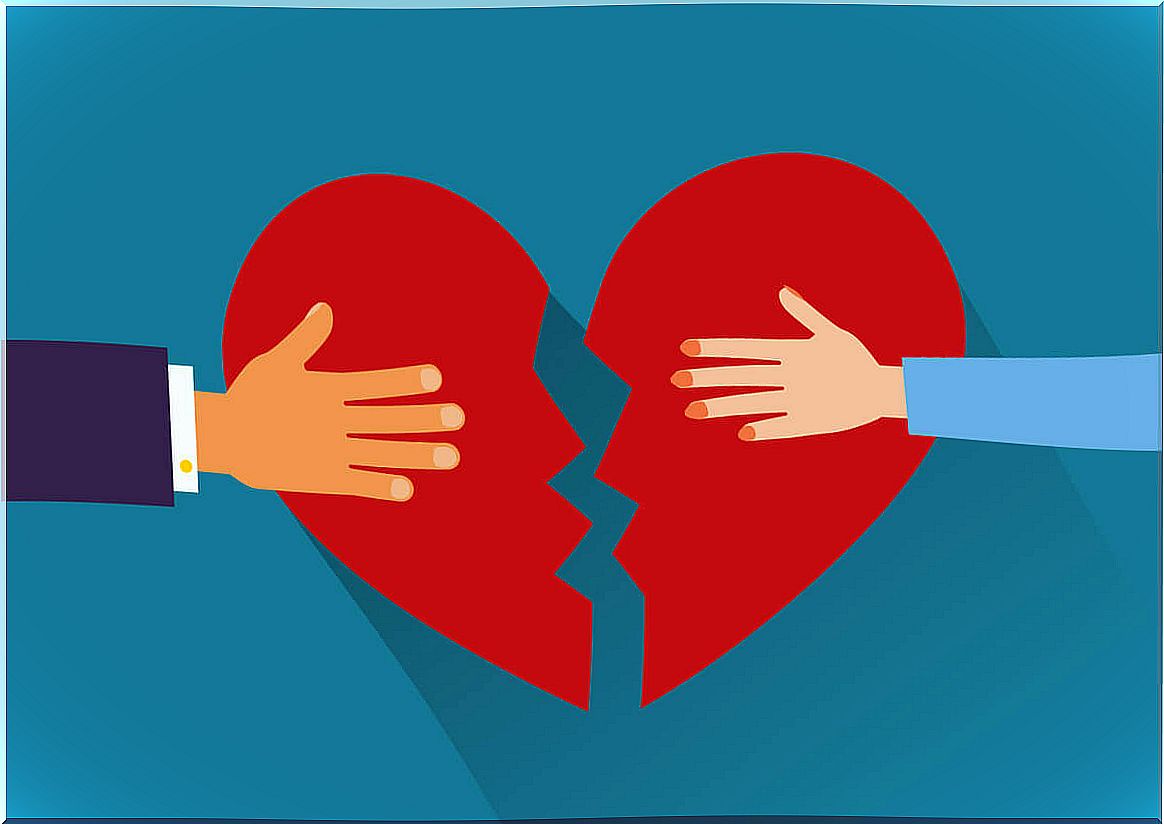How Do We Respond To Dissatisfaction? Ways To End A Relationship

How do we respond when we feel dissatisfied in relationships? Usually you choose to end an unsatisfactory relationship. This brings us to another question: how do you break up with that person?
What’s more, are there alternatives other than the breakup? There are people who take other paths. If you have been curious, in this article we will talk about how we usually handle dissatisfaction. Do not miss it.

The two ways to end a relationship
They can be work relationships, family relationships, even a hobby; it doesn’t have to be a long-term relationship. In this article we will talk about couple relationships in reference to the study by Rusbult and Zembrot in 1983. In it, these two authors asked the subjects about their coping strategies when they found themselves in a relationship that did not work. Although it may seem that there are many ways to act, the data pointed to two very strong directions :
- End the relationship : this way of acting destroys the relationship. It usually entails a more abrupt start duel, especially if it is done suddenly and without there being any signs to announce it.
- Neglect : This strategy is equally destructive to the relationship, but has a passive style. It’s about letting the relationship die, stopping caring for it until it ends on its own.
You will surely recognize both strategies if you take a look at your past relationships. Choosing one or the other depends on many variables, some more stable, such as temperament, but also others more circumstantial, such as the time of year.
Strategies to recover satisfaction in the couple
However, not everyone chooses to end a relationship that produces unhappiness. Rusbult and Zembrot also found answers to maintain the relationship and regain happiness in it:
- Expressive reaction : steps are taken to fix problems and situations that cause loss of satisfaction.
- Loyalty : If the expressive reaction is active, this is the passive side of the coin. Problems are ignored and expected to resolve themselves. The difference with neglect is that here you do not want to end the relationship, which makes a difference in attitudes and thoughts throughout the process.
But why not end an unsatisfying relationship?
This is a broad and developed debate over the years. When it comes to a relationship, emotional factors such as attachment or in a job, the need for a salary can play. Here are the most common responses that studies have found :
- The hope that it improves.
- Commitment of the couple to fix the relationship.
- Shame at the “what will they say”.
- Religious, social or economic pressures.
- No better alternative to the present relationship is anticipated.
The response to dissatisfaction according to attachment style
As you can see, there are many reasons that can play against ending a relationship, whatever it may be. These situations of discontent, depending on the attachment style we have, can be carried in one way or another.
According to Hazan and Shaver, people with ambivalent attachment styles often react with anxiety to the anticipation that the relationship will end. In these cases, the person usually returns to the relationship because he has doubts about the stability of love.
In contrast, the study carried out by Feeney and Kirkpatrick compared women – assessed with different types of attachment – who had to solve stressful tasks. The results showed that only those with secure attachment reduced their anxiety in the presence of their partner.

Where is the limit?
It’s funny how many times people cling to relationships that do not make them happy in any area. However, this opens up a debate: where is the tipping point? Is it better to end a relationship when it does not satisfy us or should we try to fix it?
Trends have changed over time, but today there is an advantage: generally, you can choose whether to stay in a relationship or not. A couple of generations ago that was unthinkable, especially for women, which gives us the power to choose the bases on which we want to establish our balance.









